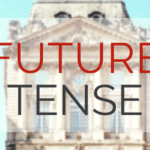
French infinitives are the equivalent to “to + VERB” in English, such as “to go” or “to swim”. They’re a basic concept that plays a huge role in understanding French verbs and how to conjugate them.
English vs. French Infinitives
Unlike in English, infinitives are a single word. Also unlike in English, many infinitives follow certain conjugation patterns based on their endings, meaning that unless it’s an irregular verb, you’ll know how to conjugate any French verb you’ve never seen before.
French infinitives patterns for Verb Conjugations
Thinking of verbs in their infinitive form will prepare you to learn which French verb endings you should apply, instead of thinking that you must memorize six different forms for each verb and each tense.
Common French Infinitives Verb Conjugation Patterns
Fortunately, most verbs in French follow set infinitive patterns, making it much easier to quickly add new verbs to your vocabulary once you identify which infinitive pattern it follows. We discuss verb conjugation forms in more detail in other lessons, but the three core patterns to know are:
- The verbs with -er infinitives
- The verbs with -ir infinitives
- Finally, the verbs with -re infinitives
Irregular French Infinitives Verb Conjugations
Not all infinitives follow a set pattern, meaning that you must memorize all forms of that conjugation. Most of these are commonly used verbs, which makes sense as language evolves. The most frequently used words are more likely to become irregular over time (read more about the four most common irregular verbs here).
Using French infinitives in sentences
French infinitives themselves (meaning in their unconjugated form) play a role in a few different types of sentences, as well.
“Having” something or “To have” something
To communicate the concept of “having” something, you use avoir + infinitive. This translates literally as “to have” in English, but “having” is usually a more natural way to say it in English.
Avoir un ami proche est un cadeau. (“Having a close friend is a gift.”)
“Being” something or “To Be” something
Similar to avoir, you can talk about the existence of something with être + infinitive to say “being” or “to be”.
Mes parents m’ont appris qu’être à l’heure c’est être en retard. (“My parents taught me that being on time is being late.”)
Before Conjugated Verbs
Infinitives can be used to express the concept of a verb in relation to a subject and conjugated verb. In most cases, the sentence order would be [subject] + [conjugated verb] + [infinitive]. For example:
J’aime courir, mais il déteste courir. (“I like running, but he hates running.”)
Je voulais voir les montagnes aujourd’hui. (“I wanted to see the mountains today.”)
As a passive descriptor role
Infinitives can also be used to as a descriptor of nouns, pronouns, and other parts of speech in a huge variety of ways. The concept is generally similar to how you would phrase a sentence in English (although note that some verbs require de or à to precede the infinitive). For example:
J’ai tellement de choses à faire aujourd’hui. (“I have so many things to do today.”)
Nous recherchons une maison pas chère à acheter. (“We are looking for an inexpensive house to buy.”)
These examples don’t cover all the ways to use an infinitive in a passive sense, but in most cases you will be able to recognize that the infinitive form should fit the sentence you’re constructing.
Infinitives in other verb Tenses
We focused on how infinitives apply to the present tense in this lesson, but other verb tenses, like the imparfait and present subjunctive, also follow patterns implied by their infinitive form. And you also might want to check out the future and conditional tenses, where the entire infinitive forms the root of all conjugation forms of the verb.



